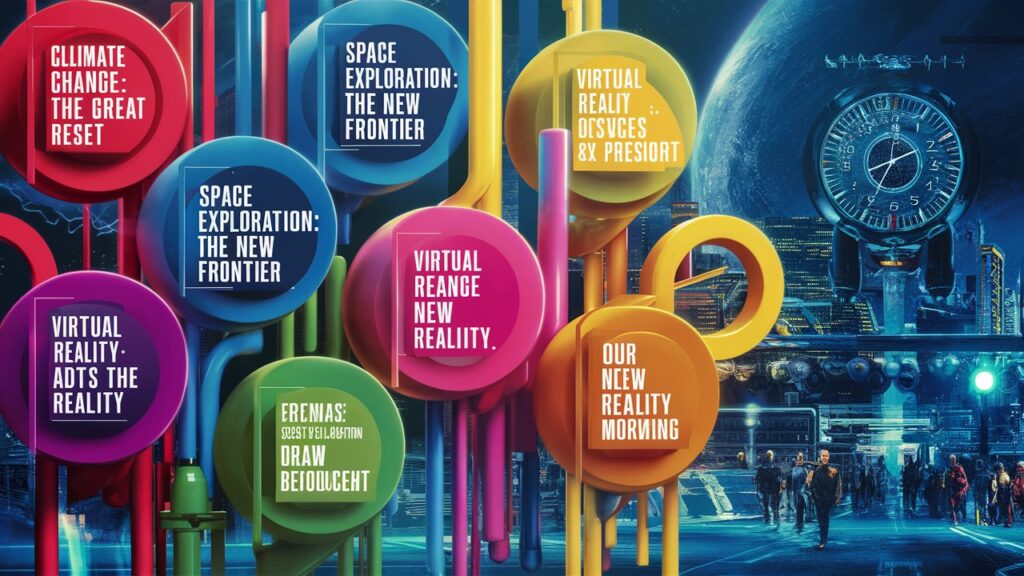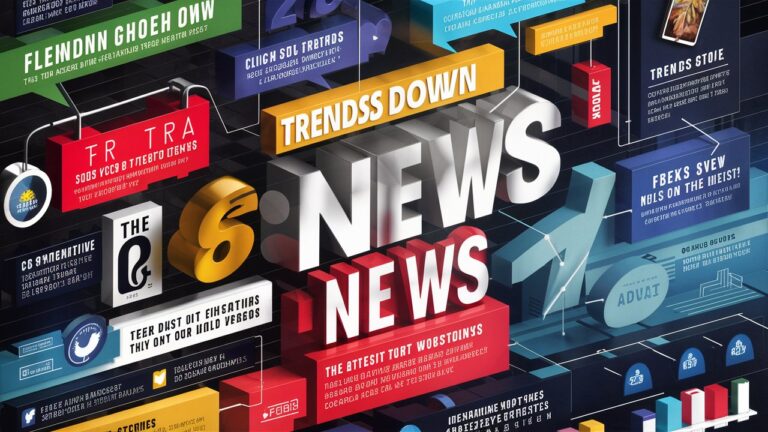Introduction
In an era where information travels faster than ever, staying updated on global developments is both a necessity and a challenge. From groundbreaking technological advancements to shifting political landscapes, the world is in a constant state of flux. At #InNewsToday.net, we aim to cut through the noise and deliver insightful analysis on the most pressing topics shaping our lives. This article dives deep into the latest trends, offering a detailed exploration of key themes dominating headlines. Whether you’re a curious reader or a seasoned analyst, this guide will equip you with the context and clarity needed to understand the forces driving change in 2023.
1. Climate Crisis Escalates: Global Efforts and Local Realities
The climate crisis remains one of the most urgent issues of our time. Recent reports from the Intergovernmental Panel on Climate Change (IPCC) highlight unprecedented temperature rises, melting polar ice caps, and extreme weather events. Governments worldwide are scrambling to meet net-zero targets, with the European Union rolling out ambitious carbon taxation policies and renewable energy subsidies. However, developing nations argue that these measures disproportionately burden their economies, sparking debates about climate justice. Meanwhile, grassroots movements like Fridays for Future continue to pressure policymakers, emphasizing the role of individual and community action.
2. Artificial Intelligence Revolution: Opportunities and Ethical Dilemmas
Artificial Intelligence (AI) is no longer a futuristic concept—it’s reshaping industries from healthcare to finance. Breakthroughs in generative AI, such as ChatGPT and MidJourney, have democratized content creation but also raised concerns about job displacement and misinformation. Tech giants like Google and Microsoft are investing billions in AI ethics research, aiming to balance innovation with accountability. Meanwhile, regulatory bodies struggle to keep pace, with the EU’s proposed AI Act sparking controversy over its potential to stifle innovation. This section unpacks the dual-edged nature of AI and its implications for privacy, employment, and creativity.
3. Geopolitical Tensions: The New Cold War Dynamics
The geopolitical arena is increasingly polarized, with the U.S.-China rivalry dominating international discourse. Trade wars, semiconductor shortages, and territorial disputes in the South China Sea underscore the fragility of global alliances. Simultaneously, the Russia-Ukraine conflict has reshaped energy markets, forcing Europe to accelerate its transition to alternative energy sources. Smaller nations, particularly in Africa and Southeast Asia, are navigating this multipolar world by forging non-aligned partnerships. This segment examines how shifting power dynamics are redefining diplomacy, security, and economic interdependence.
4. Healthcare Breakthroughs: From mRNA Vaccines to CRISPR
The healthcare sector is witnessing transformative innovations, many accelerated by the COVID-19 pandemic. mRNA vaccine technology, popularized by Pfizer and Moderna, is now being adapted to combat cancers and rare diseases. Meanwhile, CRISPR gene-editing tools promise to revolutionize personalized medicine, though ethical questions about “designer babies” persist. Mental health has also taken center stage, with telehealth platforms breaking down barriers to access. This section explores how science and policy intersect to address humanity’s most persistent health challenges.
5. Economic Uncertainty: Inflation, Remote Work, and Cryptocurrency Volatility
Global economies are grappling with inflation spikes, supply chain disruptions, and the aftershocks of the pandemic. Central banks walk a tightrope between curbing inflation and avoiding recession, while the rise of remote work continues to redefine urban economies. Cryptocurrencies, once hailed as the future of finance, face regulatory crackdowns and market instability, exemplified by the collapse of FTX. Here, we analyze the factors driving economic volatility and what they mean for businesses, workers, and investors.

6. Social Movements: DEI, Mental Health Advocacy, and Digital Activism
Social progress is being redefined by movements advocating for diversity, equity, and inclusion (DEI), mental health awareness, and digital rights. Companies are under pressure to adopt transparent DEI policies, while platforms like TikTok amplify youth-led campaigns on issues like climate anxiety and LGBTQ+ rights. However, backlash against “woke culture” highlights the cultural divides complicating these efforts. This final section delves into how grassroots activism is shaping corporate and governmental agendas in the digital age.
Conclusion
The world is navigating a complex web of challenges and opportunities, each interwoven with the others. From the existential threat of climate change to the promise of AI-driven innovation, understanding these trends requires nuance and context. At #InNewsToday.net, we believe that informed discourse is the first step toward meaningful progress. By staying engaged and critical, readers can contribute to shaping a future that balances technological advancement with human dignity and ecological sustainability.
Frequently Asked Questions (FAQs)
Q1: What is the most significant climate development in 2023?
A1: The ratification of the Global Biodiversity Framework at COP15 stands out, aiming to protect 30% of Earth’s land and oceans by 2030. However, its success hinges on funding and enforcement.
Q2: How is AI affecting job markets today?
A2: While AI automates routine tasks, it also creates new roles in data science and ethics oversight. Reskilling programs are critical to mitigating displacement.
Q3: What are the implications of the U.S.-China tech war?
A3: The competition over semiconductors and 5G is fragmenting global supply chains, forcing nations to choose between technological ecosystems and driving up costs.
Q4: Are mRNA vaccines safe for long-term use?
A4: Extensive studies show mRNA vaccines are safe, with side effects rare and typically mild. Researchers are now exploring applications beyond infectious diseases.
Q5: Can cryptocurrency recover from recent crashes?
A5: While volatility persists, blockchain technology’s potential in sectors like logistics and healthcare suggests cryptocurrencies may evolve rather than disappear.
Q6: How can individuals support social justice movements effectively?
A6: Amplifying marginalized voices, advocating for policy changes, and holding institutions accountable through petitions and responsible consumption are key steps.
#InNewsToday.net – Stay Informed, Stay Empowered.
